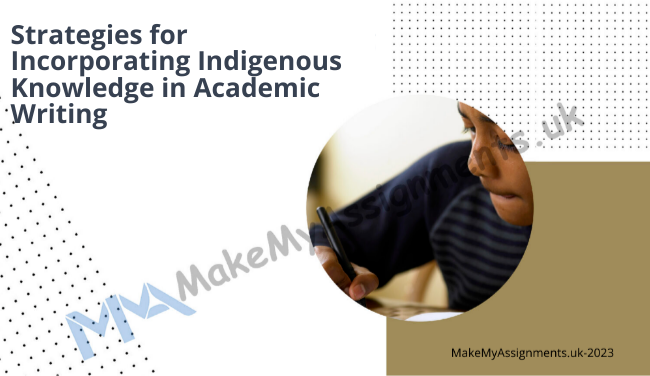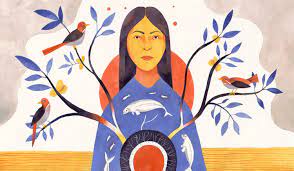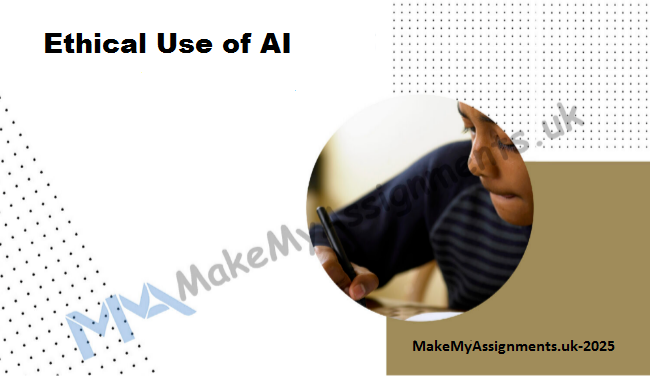Students often struggle with stress, anxiety, lack of focus, and constant distractions. Between assignments, exams,…

Strategies for Incorporating Indigenous Knowledge in Academic Writing
In the realm of academia, the pursuit of knowledge is a dynamic and evolving journey. To foster a truly inclusive and holistic understanding of various subjects, it is essential to acknowledge and incorporate the rich tapestry of Indigenous knowledge. Indigenous communities worldwide possess centuries of wisdom, traditions, and unique perspectives that can significantly enrich academic discourse. However, integrating Indigenous knowledge into academic writing requires careful consideration and respect. This blog explores strategies for incorporating Indigenous knowledge into scholarly work, fostering a more inclusive and comprehensive understanding of diverse fields.

- Engage in Active Listening and Collaboration: The first step in incorporating Indigenous knowledge into academic writing is to engage in active listening and collaboration with Indigenous communities. Establishing respectful relationships with community members can provide valuable insights and guidance. Collaborative research partnerships ensure that the representation of Indigenous knowledge is accurate, respectful, and aligned with the community’s values.
- Decolonize Your Mindset: Decolonizing academic writing involves challenging and reevaluating traditional Western perspectives. Acknowledge and question Eurocentric biases and assumptions that may be embedded in your writing. Consider alternative viewpoints and challenge colonial narratives to create space for the inclusion of Indigenous knowledge. A decolonized mindset is crucial for fostering a more inclusive academic environment.
- Understand the Importance of Orality: Indigenous knowledge is often transmitted orally through storytelling, ceremonies, and other non-written forms. Recognize the significance of orality in Indigenous cultures and explore ways to incorporate these oral traditions into written academic work. This might involve quoting oral narratives, incorporating oral histories, or adapting storytelling techniques to convey complex ideas.
- Respect Indigenous Protocols and Ethics: Each Indigenous community has its own protocols, ethics, and ways of sharing knowledge. It is imperative to respect and adhere to these guidelines when incorporating Indigenous knowledge into academic writing. Seek permission from the community before using specific information and adhere to ethical standards to prevent cultural appropriation or misrepresentation.
- Use Inclusive Language: Language plays a pivotal role in shaping perspectives. Use inclusive language that respects Indigenous identities and experiences. Avoid stereotyping or generalizing Indigenous cultures and be mindful of the diverse linguistic landscape within Indigenous communities. Consulting style guides and resources that provide guidance on inclusive language use can be beneficial.
- Promote Two-Way Knowledge Exchange: Encourage a reciprocal flow of knowledge between academia and Indigenous communities. Beyond extracting information for academic purposes, consider how your research can contribute to the well-being and priorities of the Indigenous community. Engage in dialogue and explore ways to give back, creating a sustainable and mutually beneficial knowledge exchange.
- Utilize Indigenous Research Methodologies: Embrace Indigenous research methodologies that prioritize community involvement, relationality, and holistic perspectives. Blend Western research methodologies with Indigenous approaches to create a more comprehensive research framework. This approach ensures that academic writing is rooted in cultural contexts and aligns with Indigenous ways of knowing.
In the pursuit of academic excellence, students often encounter the challenge of incorporating diverse perspectives, including Indigenous knowledge, into their assignments. MakeMyAssignments.uk recognizes the importance of fostering inclusive academic writing and offers tailored support to students seeking to integrate Indigenous knowledge into their work. Here’s how MakeMyAssignments.uk can assist students in embracing the strategies outlined for a more comprehensive and respectful approach:
- Diverse Expertise: MakeMyAssignments.uk boasts a team of experienced writers and researchers with diverse backgrounds, including expertise in Indigenous studies. These professionals are well-versed in the nuances of incorporating Indigenous knowledge into academic writing and can provide valuable insights and guidance.
- Cultural Sensitivity: Understanding the importance of cultural sensitivity, the team at MakeMyAssignments.uk is committed to respecting Indigenous protocols, ethics, and perspectives. Writers undergo training to ensure they approach assignments with the utmost respect for diverse cultures, promoting accurate representation and preventing cultural appropriation.
- Collaboration and Consultation: MakeMyAssignments.uk encourages students to actively engage in collaboration and consultation with Indigenous communities when relevant to their assignments. The platform provides resources and guidance on establishing respectful relationships with community members, ensuring the incorporation of accurate and ethically sourced information.
- Decolonized Approach: The writing professionals at MakeMyAssignments.uk understand the importance of adopting a decolonized mindset. They are trained to critically examine existing biases and challenge traditional Western perspectives, creating assignments that reflect a more inclusive and diverse worldview.
- Inclusive Language Use: Recognizing the significance of inclusive language, MakeMyAssignments.uk guides students on incorporating respectful and culturally sensitive language into their work. Writers are attentive to linguistic nuances and strive to eliminate stereotypes and generalizations, ensuring that the language used aligns with best practices for inclusivity.
- Two-Way Knowledge Exchange: MakeMyAssignments.uk promotes a holistic approach to academic writing by encouraging students to consider the two-way exchange of knowledge. The platform provides resources and support for students to explore how their assignments can contribute meaningfully to Indigenous communities, fostering a sense of reciprocity and ethical engagement.
- Integration of Indigenous Research Methodologies: The writing professionals at MakeMyAssignments.uk are well-versed in both Western and Indigenous research methodologies. They can guide students on blending these approaches seamlessly, ensuring that assignments are rooted in cultural contexts and aligned with Indigenous ways of knowing.
In conclusion, MakeMyAssignments.uk stands as a valuable ally for students navigating the complexities of incorporating Indigenous knowledge into their academic writing. By combining expertise, cultural sensitivity, and a commitment to inclusivity, MakeMyAssignments.uk empowers students to produce assignments that not only meet academic standards but also contribute to a more equitable and respectful representation of diverse knowledge systems. With MakeMyAssignments.uk, students can confidently embrace the strategies outlined for inclusive academic writing, enriching their scholarly pursuits with the wisdom of Indigenous communities.




This Post Has 0 Comments